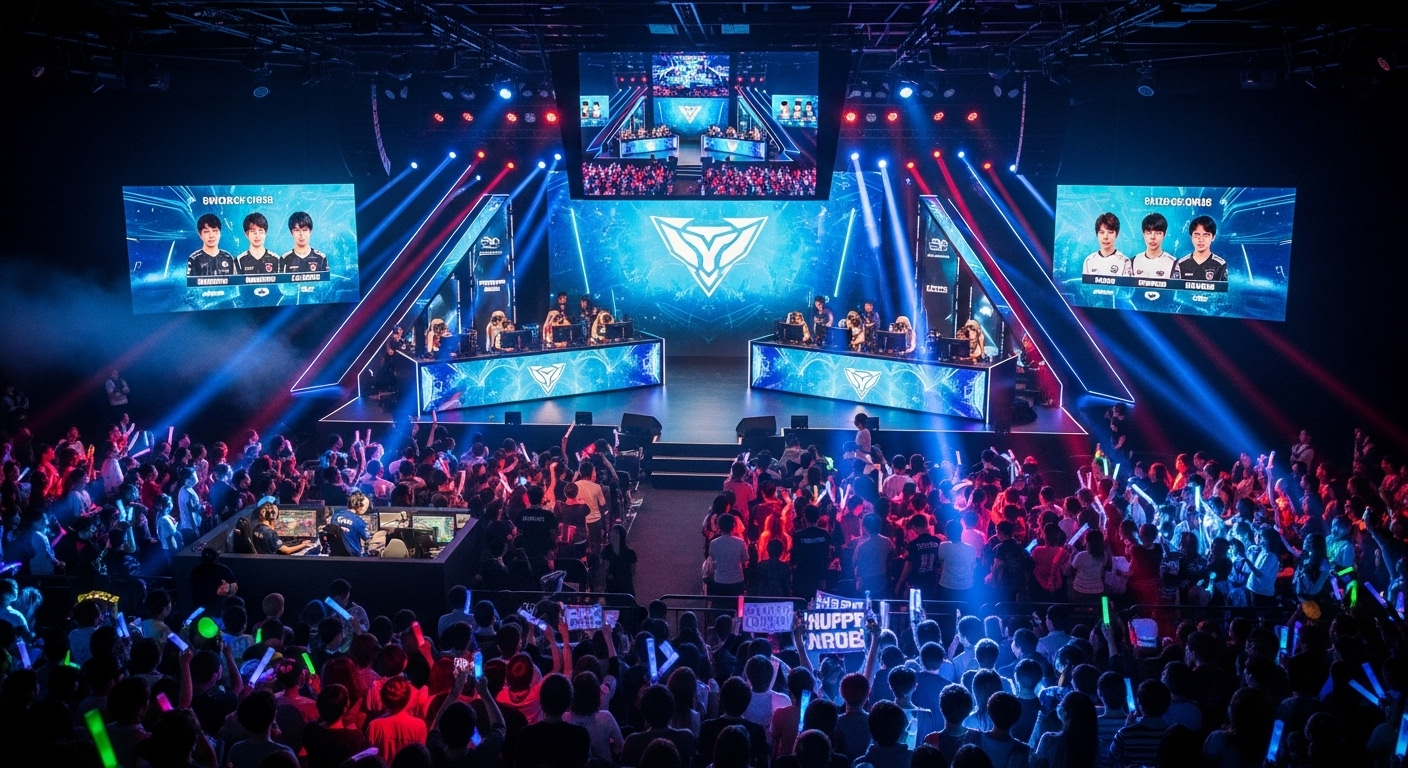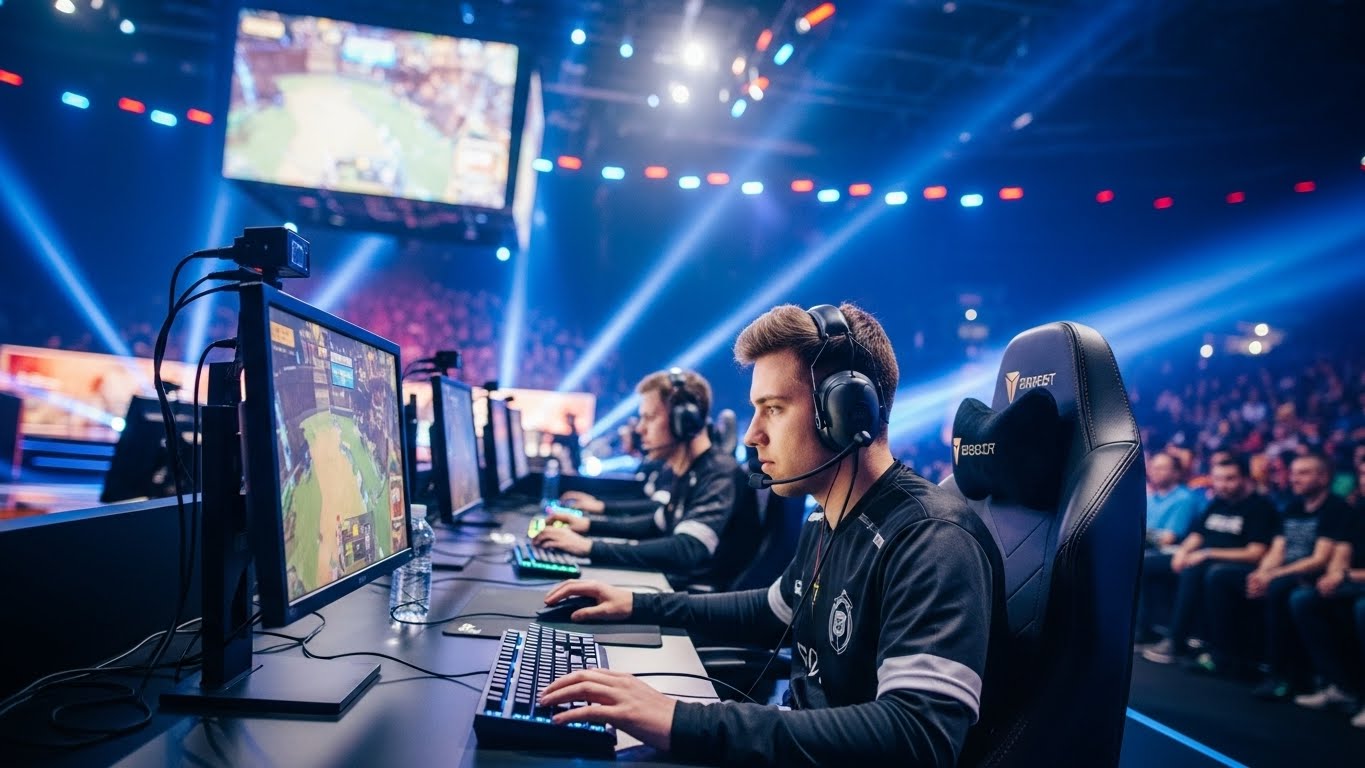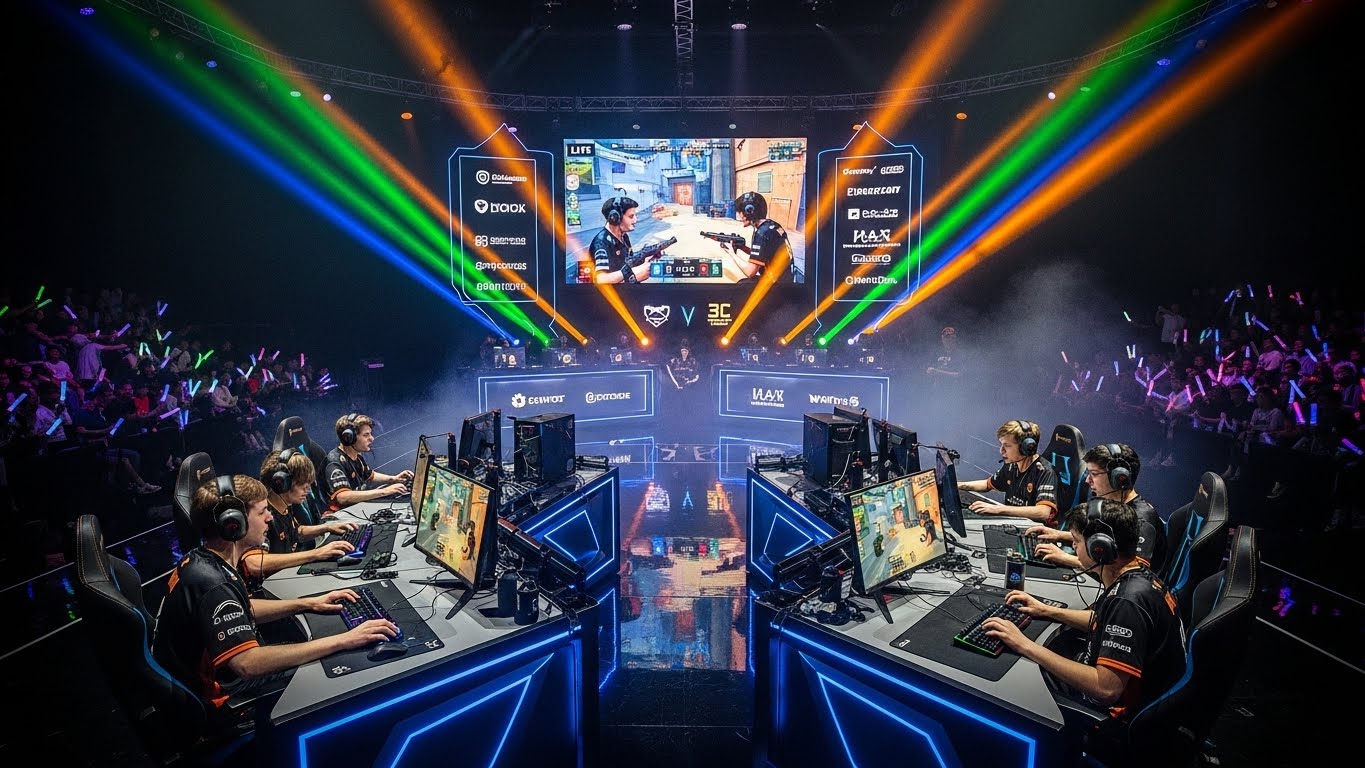Introduction to Esports
In the modern age of technology and entertainment, esports has become one of the fastest-growing global industries. What once began as small-scale competitions between friends in internet cafés has evolved into a billion-dollar phenomenon, attracting millions of viewers, sponsors, and professional players worldwide. Esports, short for electronic sports, refers to organized competitive video gaming where individuals or teams play against each other in various titles, from first-person shooters to strategy-based games. This digital competition has reshaped the concept of sports, redefining what it means to be an athlete and what it takes to entertain in the 21st century.
Esports has grown from a niche hobby into a cultural powerhouse. Its popularity is fueled by the increasing accessibility of technology, the widespread use of the internet, and the universal love for gaming. Today, esports tournaments fill arenas, stream online to millions, and feature prize pools rivaling traditional sporting events. To understand the magnitude of this transformation, one must look into the origins, development, culture, and impact of esports on society.
The Early Days of Competitive Gaming
The roots of esports can be traced back to the late 1970s and early 1980s when video games began to appear in arcades. The first recognized gaming competition took place at Stanford University in 1972, where students competed in the game “Spacewar.” The prize? A year’s subscription to a magazine. Though modest by today’s standards, it marked the birth of competitive gaming.
In the 1980s, arcade titles like “Pac-Man” and “Donkey Kong” popularized high-score competitions. Gamers around the world competed to have their names immortalized on arcade leaderboards. Magazines began publishing high-score rankings, and the concept of being the best gamer started to take shape. By the 1990s, the introduction of home gaming consoles such as the Nintendo Entertainment System and Sega Genesis expanded the gaming landscape. Local competitions and small tournaments became common, paving the way for a more structured form of gaming contests.
The late 1990s witnessed the rise of PC gaming, which brought multiplayer games like “StarCraft,” “Counter-Strike,” and “Quake” into the spotlight. These titles required strategy, teamwork, and precision, making them ideal for competitive play. Internet connectivity made it possible for players from around the world to compete without being physically present in the same location. This advancement was a turning point, laying the groundwork for the global esports ecosystem we see today.
The Professionalization of Esports
By the early 2000s, esports began to resemble traditional sports in organization and professionalism. Dedicated leagues, sponsorship deals, and large-scale tournaments emerged. Companies recognized the marketing potential of competitive gaming and began investing heavily. Professional players started earning salaries, teams formed official rosters, and gaming organizations built brands around their players.
One of the defining features of esports’ professionalization was the rise of massive tournaments. Events such as the World Cyber Games, Major League Gaming, and Intel Extreme Masters showcased top-tier talent and attracted international audiences. Prize pools began to grow significantly, turning esports into a legitimate career path for skilled players.
The 2010s saw explosive growth with the emergence of games like “League of Legends,” “Dota 2,” and “Overwatch.” These titles were designed with competitive play in mind, offering ranked systems, spectator modes, and developer-supported tournaments. Streaming platforms such as Twitch and YouTube Gaming allowed fans to watch live matches, interact with their favorite players, and build communities around games. This digital accessibility played a crucial role in expanding esports’ global reach.
Esports as a Global Phenomenon
Today, esports is not limited by geography or language. Major tournaments attract participants and viewers from every continent. Countries like South Korea, China, the United States, and Sweden have become hubs of esports activity. South Korea, in particular, is often considered the birthplace of modern esports culture. The country’s early adoption of broadband internet and support for gaming infrastructure helped produce professional gamers who became national celebrities.
In China, esports has become a mainstream industry, supported by the government and educational institutions. Universities now offer degrees in esports management, production, and coaching. The United States has also embraced competitive gaming, with major leagues, sponsorships, and college scholarships dedicated to esports players.
Esports events fill massive stadiums such as Madison Square Garden and the Staples Center. The finals of popular tournaments, like the League of Legends World Championship, are broadcast to millions of viewers worldwide. These events blend traditional sports production with digital entertainment, offering cinematic presentations, live commentary, and fan interaction that rivals any conventional sport.
The Economic Power of Esports
The economic impact of esports is staggering. The industry now generates billions of dollars annually through sponsorships, advertisements, merchandise, ticket sales, and media rights. Major corporations, including technology giants, beverage companies, and automobile manufacturers, sponsor teams and tournaments.
Prize pools for some esports competitions surpass those of traditional sports events. For instance, tournaments like “The International” for Dota 2 have offered prize pools exceeding tens of millions of dollars, crowdfunded by fans through in-game purchases. This financial scale demonstrates the passionate engagement of the gaming community.
Professional players, once considered mere hobbyists, now enjoy lucrative careers. They earn salaries, streaming revenue, sponsorship deals, and performance bonuses. Team organizations operate much like traditional sports franchises, hiring coaches, analysts, nutritionists, and media staff to support their players. Esports has become a legitimate and respected industry offering diverse career paths beyond just playing—such as commentary, event production, marketing, and game design.
Esports and Technology
The growth of esports is deeply intertwined with technological advancement. High-speed internet, powerful gaming hardware, and streaming services have enabled esports to flourish. Innovations in virtual reality, augmented reality, and artificial intelligence continue to influence the way games are played and viewed.
Streaming platforms revolutionized how fans engage with gaming. They allow instant access to live matches and enable fans to interact with streamers in real time. Social media also plays a vital role, providing updates, highlights, and behind-the-scenes content that strengthen fan loyalty.
Additionally, improvements in broadcasting technology have enhanced the viewing experience. Multi-angle replays, real-time statistics, and augmented overlays provide depth to the storytelling of matches. Spectator-friendly features have turned esports into a polished and professional viewing experience suitable for both casual fans and dedicated enthusiasts.
The Culture and Community of Esports
Beyond the competition, esports has built a vibrant and inclusive global community. Fans form deep connections with their favorite teams and players, creating a culture similar to traditional sports fandom. Online forums, social media, and community events foster discussion, debate, and celebration.
Esports has also encouraged creativity. Fans produce art, music, and videos inspired by their favorite games and moments. Cosplay and fan conventions celebrate gaming culture, further blending entertainment and artistry. The esports community thrives on passion, diversity, and shared enthusiasm.
The competitive gaming environment also promotes teamwork, communication, and strategic thinking. These skills are transferable to real-world contexts, contributing to personal development and professional growth for many young players.
The Challenges Facing Esports
Despite its success, esports faces several challenges that must be addressed to ensure sustainable growth. One major issue is player burnout. Professional gamers often spend long hours practicing, sometimes at the cost of their physical and mental health. Establishing healthy work-life balance and providing psychological support are essential for the industry’s longevity.
Another challenge is maintaining integrity and fairness. Issues such as cheating, match-fixing, and doping have occasionally surfaced, tarnishing the reputation of competitive gaming. To combat these problems, governing bodies and organizations are implementing stricter regulations, anti-cheat technologies, and player education programs.
Esports also faces the challenge of inclusivity. While the industry is open to all genders and backgrounds, female and minority representation remains limited. Initiatives promoting diversity, safer spaces, and equal opportunities are crucial for fostering an inclusive esports ecosystem.
Furthermore, the fast-paced nature of gaming can lead to short-lived titles and shifting audiences. A game popular today might lose relevance tomorrow. Developers and organizers must continuously adapt to new trends and technologies to keep audiences engaged.
The Educational and Social Impact of Esports
Esports is no longer seen as merely entertainment; it has entered educational and developmental spaces. Schools and universities around the world now offer esports programs, teaching not only gameplay but also event management, marketing, and production. These courses prepare students for various careers within the esports industry and beyond.
Esports also promotes valuable life skills. Players learn teamwork, leadership, strategic planning, and problem-solving. These skills translate well into academic and professional environments. Moreover, gaming communities often provide a sense of belonging and purpose for young people, especially in an increasingly digital world.
Educational institutions have recognized esports as a way to engage students and encourage positive social interaction. Competitive gaming clubs and collegiate leagues create opportunities for students to compete, collaborate, and develop confidence.
The Future of Esports
Looking ahead, the future of esports appears brighter than ever. With advancements in technology, expanding audiences, and growing mainstream acceptance, esports is poised to become an integral part of global entertainment. Virtual reality and cloud gaming could redefine how esports are played and experienced. Fans may one day step into immersive virtual arenas, watching matches from within the game itself.
The integration of artificial intelligence may further enhance player training and strategic analysis, making competition even more dynamic. As esports continues to evolve, it may merge with other forms of digital entertainment, such as music, film, and interactive storytelling, creating hybrid experiences that transcend traditional boundaries.
Esports is also set to play a major role in the metaverse—an interconnected virtual space where users can socialize, compete, and create. Major companies are already exploring how to host tournaments, virtual fan meetups, and digital merchandise within these environments.
Conclusion
Esports has come a long way from its humble beginnings in arcades and university labs. What was once a pastime for enthusiasts has grown into a cultural and economic force with global influence. It bridges technology, entertainment, and community in ways that few other industries can. Esports embodies the spirit of modern competition—digital, diverse, and driven by passion.
The future promises even greater opportunities for growth, innovation, and connection. As society continues to embrace the digital age, esports will remain at the forefront, not just as a game but as a reflection of human creativity, collaboration, and ambition. In the end, esports is more than just playing—it’s about building a world where skill, strategy, and imagination unite people across the globe.



